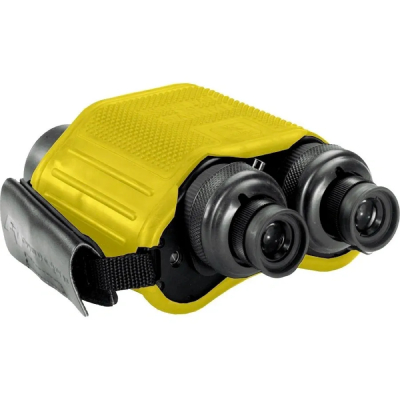
Gyrostabilized Binoculars – Are They Worth the Money?
Talk to any skipper who has ever used gyrostabilized binoculars to aid in their offshore fishing and you will talk to a skipper who will not leave the dock without them. Now, more than ever, with the cost of fuel and tougher than ever fishing, it is the time to make the investment if you haven’t already. It’s not an easy nut to crack, but I have not heard a complaint yet. With several hundred units out there, I have never once heard of one being for sale after the fact, or had someone say they regretted the purchase. Never!
I discovered gyros back in 1994, when I was fishing tournaments, and had a military surplus guy tell me I just had to try them out. He loaned me a pair of the old Russian Military surplus Peleng’s. They were incredible: I was an instant super hero. The Peleng’s worked well when they worked, but parts and a service person were non-existent. After that I tried Fujinon’s Stabi-Scope, but did not like how they worked for me (difficult to adjust to my eyes and not comfortable to hold), and couldn’t afford them at the time anyway.
In 2001, a friend of mine then turned me on to an American company in Pennsylvania called Fraser-Volpe who made gyro-stabilized binoculars for the military. Wow, these units were super crisp and clear. They had a very fast scan rate, and a much larger field of view then did the Peleng’s or Fujinon’s. The only drawback was that their gyro was smaller and did not flatten the bumps out as well as the other units. I contacted Fraser-Volpe and gave them some suggestions to make the unit work for fishermen. I asked that they get rid of the military aiming crosshairs, make the switching mechanism easier, add a Marinco cigarette lighter plug connection in place of the military utility connector, and then fit the unit with Baker Marine rubber eye shields. They listened to the suggestions and made the “Mariner” one of their new products. I was so impressed with the product that I decided to represent the company myself and help fishermen around the world catch more fish.
